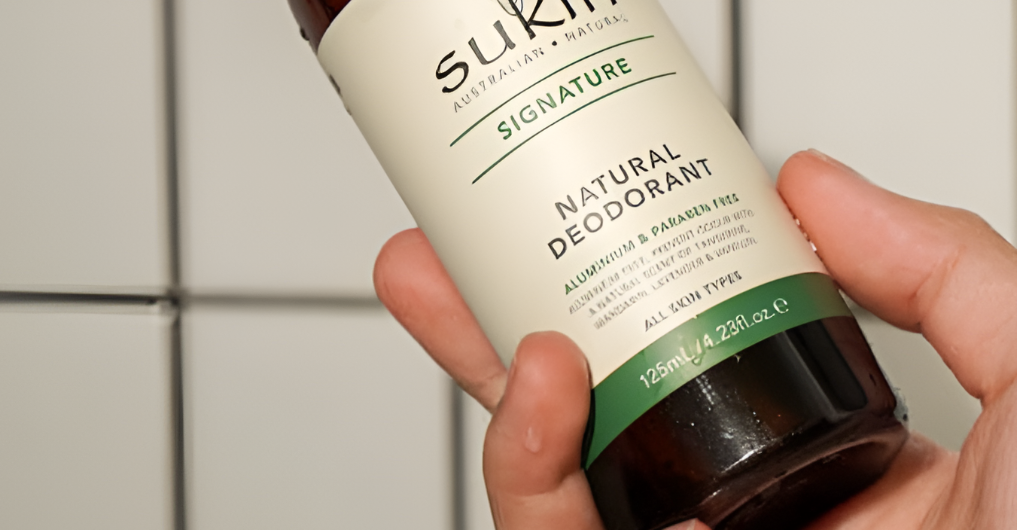The Truth About Natural Deodorants: Are They Better for You?

© gpointstudio / FreePik
Smell better and feel better! At least, that is what natural deodorants are claiming to offer. With this summer reaching an all-time temperature peak, it comes as no surprise that people are looking for ways to beat the heat. One of the options is to definitely find a deodorant that helps with odor and warm-induced sweat stains. A lot of companies and researchers suggest that natural deodorants might be more efficient. But are they truly better for you than normal deodorants? Let us find out together!
What Are Natural Deodorants?
Natural deodorants are personal care products that are allegedly designed to help control body odor and perspiration without the use of synthetic chemicals or ingredients that are often found in conventional antiperspirants and deodorants. These natural alternatives aim to provide odor protection while using ingredients that are derived from nature and are considered safer and more environmentally friendly.
Characteristics of Natural Deodorants
- Ingredients: These types of deodorant typically contain ingredients like baking soda, arrowroot powder, coconut oil, shea butter, and various essential oils. These ingredients are chosen for their odor-neutralizing, moisture-absorbing, and skin-soothing properties.
- No Aluminum: Unlike many conventional antiperspirants, natural deodorants do not contain aluminum compounds. Aluminum is often used in antiperspirants to block sweat glands and reduce perspiration. Some people prefer to avoid aluminum due to health concerns, although scientific consensus on its safety remains a topic of debate.
- No Parabens or Phthalates: They are also formulated without synthetic fragrances, parabens, phthalates, and other potentially harmful chemicals that may be present in traditional deodorants.
- Cruelty-Free and Vegan Options: Many natural deodorant brands prioritize cruelty-free and vegan formulations, ensuring that their products are not tested on animals and do not contain animal-derived ingredients.
- Scent Varieties: They often come in a variety of scents, which are achieved through the use of essential oils or natural fragrance extracts. Some popular scents include lavender, citrus, tea tree, and mint.
- Environmentally Conscious Packaging: Some brands are committed to eco-friendly packaging, using recyclable materials or offering refillable options to reduce plastic waste.
What Do Natural Deodorants Claim to Do?
These types of deodorants typically make several claims related to their performance and benefits, which are designed to appeal to individuals seeking alternatives to conventional antiperspirants and deodorants. These claims often emphasize their natural and chemical-free ingredients.
Many companies that create these types of deodorants claim that they provide long-lasting odor protection throughout the day. Some brands claim to offer 24-hour protection, although the effectiveness can vary from person to person. Additionally, these deodorants often highlight their gentle and non-irritating formulations, making them suitable for individuals with sensitive skin. Ingredients like shea butter and coconut oil are included for their skin-soothing properties.

One of the additional claims of natural deodorants is that they are aluminum-free. They advertise this as a safer alternative to conventional antiperspirants, which contain aluminum compounds that temporarily block sweat glands. Natural deodorants also emphasize their absence of synthetic chemicals, such as parabens, phthalates, synthetic fragrances, and artificial preservatives. They often position themselves as a healthier and more natural choice.
What is the Difference Between a Natural and Normal Deodorant?
The main difference between a natural deodorant and a “normal” or conventional deodorant lies in their ingredients and approach to odor and sweat control. Here are the key distinctions:
Ingredients
Natural deodorants are formulated with ingredients that are derived from nature and are typically free from synthetic chemicals. They commonly use ingredients like baking soda, arrowroot powder, coconut oil, shea butter, and essential oils. These ingredients are chosen for their odor-neutralizing, moisture-absorbing, and skin-soothing properties. Natural deodorants do not contain aluminum compounds, parabens, phthalates, synthetic fragrances, or artificial preservatives.

Normal deodorants often contain a combination of synthetic chemicals and compounds, including aluminum-based compounds that temporarily block sweat glands to reduce perspiration. They may also contain synthetic fragrances, parabens, phthalates, and other artificial ingredients to mask odors and provide long-lasting protection.
Sweat Control
Natural deodorants primarily focus on controlling body odor by neutralizing the bacteria responsible for causing odors. They do not inhibit sweating to the same extent as antiperspirants, and they allow the body to naturally release sweat.
Normal deodorants on the other hand often double as antiperspirants, meaning they contain aluminum-based compounds that block sweat glands to reduce perspiration. This leads to less sweating in the areas where they are applied, in addition to odor control.
Are Natural Deodorants Really Better for You?
These types of deodorants are not necessarily better for you in terms of health concerns like breast cancer or Alzheimer’s disease. Claims that conventional antiperspirants cause breast cancer or that aluminum in antiperspirants leads to Alzheimer’s have been debunked by experts, including those from the American Cancer Society. There is no evidence supporting these claims. Only a tiny amount of aluminum can be absorbed through the skin from antiperspirants, making it a negligible risk. Additionally, the link between aluminum and Alzheimer’s is considered inconclusive and has largely been abandoned by researchers.
Ultimately, the choice between natural and conventional deodorants should be based on personal preferences and needs. Some people prefer natural deodorants for their natural ingredients, while others may opt for antiperspirants for better sweat control. It’s important to have choices to find the right product for individual preferences and comfort.
The Downsides of Natural Deodorants
While natural deodorants offer many benefits, there are also some potential downsides and challenges associated with using them. It’s essential to be aware of these factors when considering whether natural deodorants are the right choice for you:
Less Effective Sweat Control
Natural deodorants primarily focus on odor control and do not inhibit sweating to the same extent as antiperspirants. If you are someone who sweats heavily, especially in hot or humid conditions, you may find that natural deodorants are less effective at keeping you dry.
Transition Period
When transitioning from conventional antiperspirants to natural deodorants, some individuals experience a “detox” or adjustment period. During this time, you may notice increased sweating and odor as your body adapts to the absence of antiperspirant ingredients. This period can last for a few days to a few weeks.
Reapplication
Natural deodorants may require more frequent reapplication throughout the day to maintain effectiveness, especially for those with active lifestyles or during strenuous activities.
Scent Variability
The scents of natural deodorants are often derived from essential oils, which can vary in intensity and longevity. Some individuals may find that the scent of a natural deodorant does not last as long as they would like.
Ingredient Sensitivities
While natural ingredients are generally considered safer, some people may still have sensitivities or allergies to certain components in natural deodorants, such as essential oils or baking soda. It’s important to check the ingredient list for potential irritants.
High-Cost Product
Natural deodorants can be more expensive than conventional options, primarily due to the use of higher-quality and ethically sourced ingredients. This can be a consideration for individuals on a tight budget.
Staining and Residue
Some natural deodorants, especially those in cream or paste form, may leave a white residue on clothing or cause staining. This can be a cosmetic concern.
Should You Use Natural Deodorants?
The term “natural” in deodorant products lacks a standardized definition, with variations ranging from plant-derived ingredients to the absence of aluminum compounds. Unlike deodorants, antiperspirants, which require FDA approval, have undergone rigorous evaluation for safety and effectiveness. They are likely the most effective option for most people, as they reduce both sweat and odor. While aluminum in antiperspirants can trigger contact dermatitis in a small minority with sensitive skin, it is generally considered safe for most users.
Are you willing to give these natural deodorants a chance? Or will you stay loyal to the normal ones instead?


